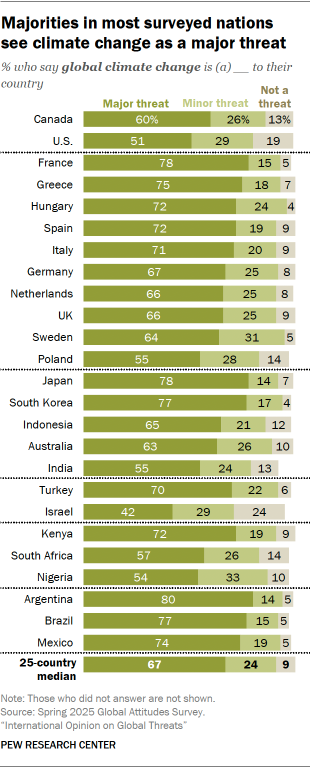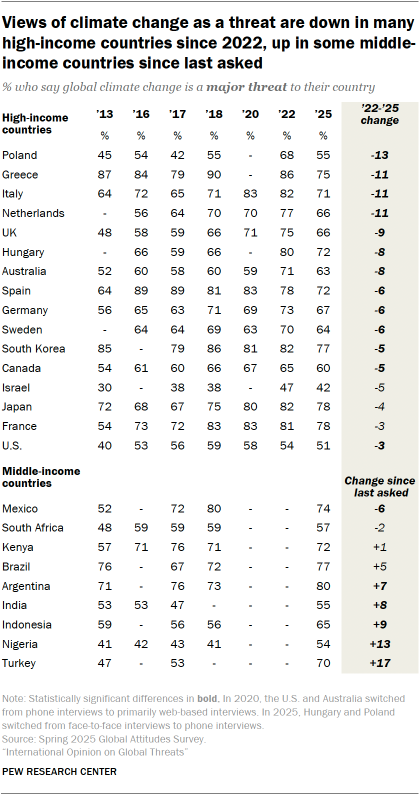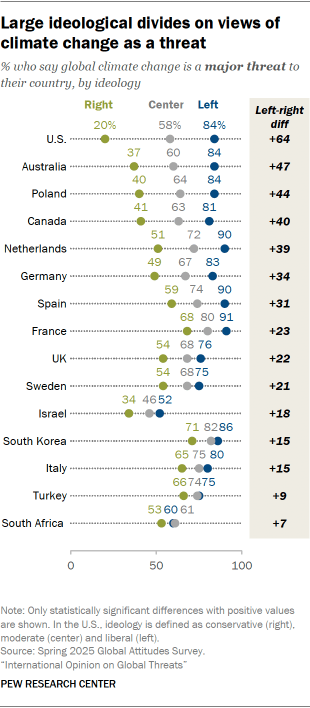
- A median of 67% of adults across 25 nations say global climate change is a major threat to their country. Another 24% say it is a minor threat, and 9% say it is not a threat.
- In many of the high-income countries we surveyed in both 2022 and 2025, the share of adults who see climate change as a major threat has decreased significantly.
Majorities in all but three countries – Israel, Nigeria and the U.S. – see climate change as a major threat. Around eight-in-ten hold this view in Argentina, Brazil, France, Japan and South Korea.
About a quarter of Israelis (24%) say climate change is not a threat – the largest share to take this stance across the countries surveyed. In the U.S., about a fifth of adults (19%) say the same.
Views over time
The share of adults who say climate change is a major threat has increased in many places since 2013, when we first asked this question internationally. In Turkey, for example, 47% of adults thought of climate change as a major threat in 2013. This year, 70% of Turks express this view.

However, since 2022, the share of people who view climate change as a major threat has decreased in many of the 16 high-income countries surveyed. This is especially the case in Greece, Italy and the Netherlands, where people are 11 points less likely today than in 2022 to see climate change as a major threat. (Read Appendix A for more information on how we classify high- and middle-income countries.)
Views by ideology
In 15 surveyed countries, people who place themselves on the ideological left are much more likely than those on the right to view climate change as a major threat.

The largest difference is in the U.S., where liberals are more than four times as likely as conservatives to say this (84% vs. 20%).
People on the right have become less likely since 2022 to call climate change a major threat in several countries. In Poland, for example, 40% of those on the right say this today, down from 63% three years ago.
Views by support for right-wing populist parties
Europeans who support right-wing populist parties tend to be much less likely than nonsupporters to say climate change is a major threat. This is the case across all right-wing populist parties we analyzed. (Read Appendix B for more information on how we classify populist parties.)
For example, a quarter of Germans with a favorable view of Alternative for Germany (AfD) say climate change is a major threat, compared with 78% of those who have an unfavorable view of AfD.
Views by age
In several countries – including Australia, France, Turkey and the U.S. – adults under 35 are more likely than those ages 50 and older to see climate change as a major threat. But the reverse is true in Argentina, Japan, South Korea and Sweden.




